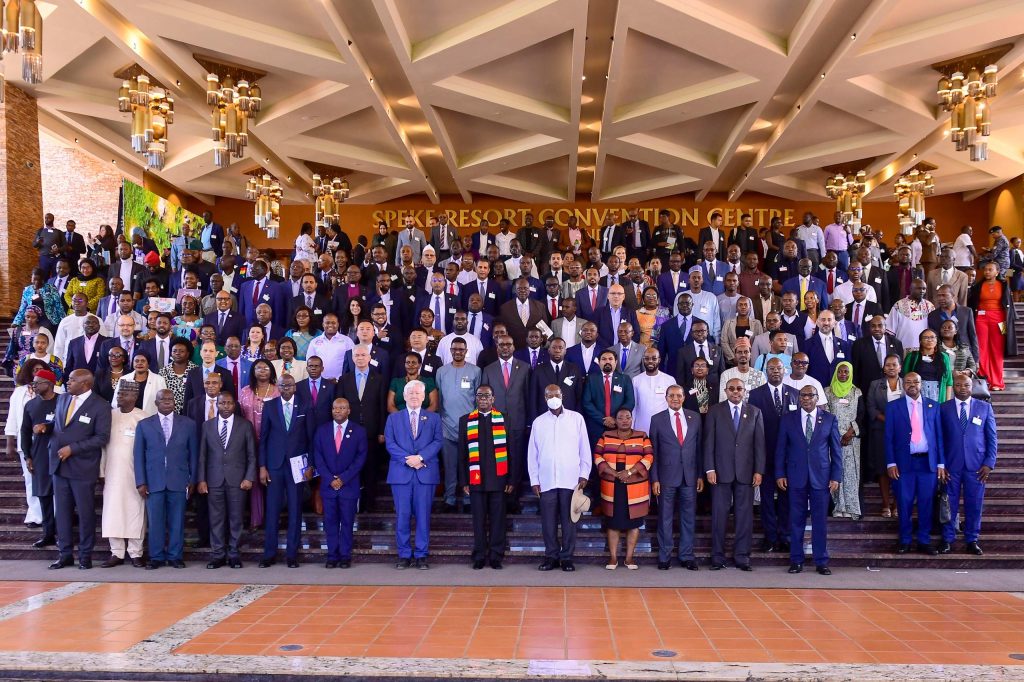President Yoweri Kaguta Museveni has urged African nations to take charge of their development agendas through homegrown solutions and regional integration, cautioning that external support, while helpful, is not a guarantee for sustainable progress.
Speaking at the 11th Africa Regional Forum on Sustainable Development (ARFSD-11) at Speke Resort Munyonyo, Museveni highlighted Uganda’s economic resilience despite external pressures.
“We had an argument with Europeans recently. We passed a law discussing homosexuality here. Then the United States removed us from the AGOA list, and the World Bank stopped giving us loans, but our economy still grew by 6%,” he noted.
Museveni emphasized that Uganda’s growth—rooted in agriculture, industry, services, and ICT—demonstrates Africa’s ability to develop without over-reliance on foreign aid.
He outlined the country’s economic journey from a barter-based economy under colonial rule to today’s diversified market, crediting government interventions such as Operation Wealth Creation and the Parish Development Model.
To sustain progress, the President called for low-cost transport, affordable electricity, and value addition to Africa’s raw materials. “What’s crucial for me, apart from our own mistakes, is regional integration. If we avoid them, we can go far,” he said.
His remarks were echoed by Mr. Robert Keith Rae, Canada’s Ambassador to the UN, who acknowledged Africa’s role in achieving the Sustainable Development Goals (SDGs) and stressed global solidarity in tackling economic and climate challenges.
“The rhetoric and unnecessary attacks on global trade have had disastrous outcomes on global growth,” Rae noted.
UN Deputy Secretary-General Amina Mohammed also urged African leaders to address development financing gaps. “More than 60% of African countries are spending a substantial portion of their revenues on debt servicing. This reality cannot be ignored,” she stated, calling for bold, local solutions.
Mr. Claver Gatete, Executive Secretary of UNECA, lauded Uganda’s progress while stressing the need to harness Africa’s youthful population, increase access to finance for women and youth, and fully implement the African Continental Free Trade Area (AfCFTA).
With global economic uncertainties, leaders at the forum reinforced the message that Africa’s future lies in self-reliance, regional collaboration, and strategic investment in its people and resources.
